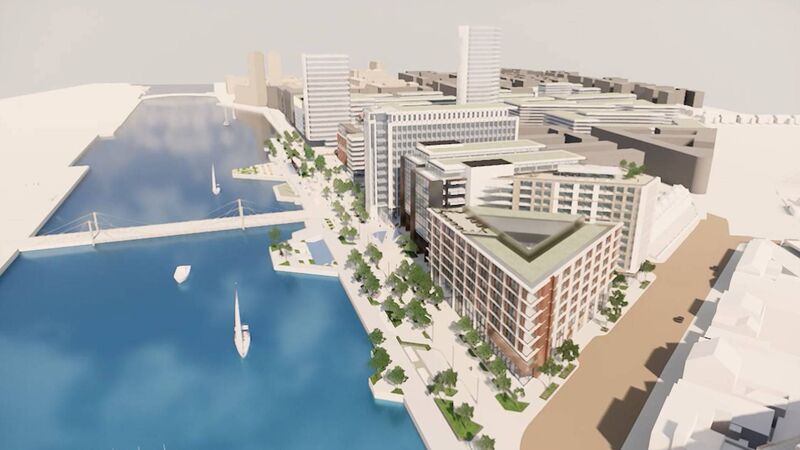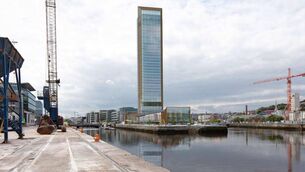New rehabilitation hospital earmarked for Cork docklands in development plan

The proposed hospital will be at the junction with Victoria Road. Picture: Flythrough
THE only hospital dedicated to rehabilitation outside of Dublin is earmarked for Cork City, as part of a prodigiously ambitious €350m plan to develop the South Docks.
The 122,000 sq ft 130-bed rehabilitation hospital will provide rehab for patients with stroke and acquired brain injury, as well as general neurological rehabilitation, and will be among the most modern in Europe, according to developers O’Callaghan Properties (OCP).










